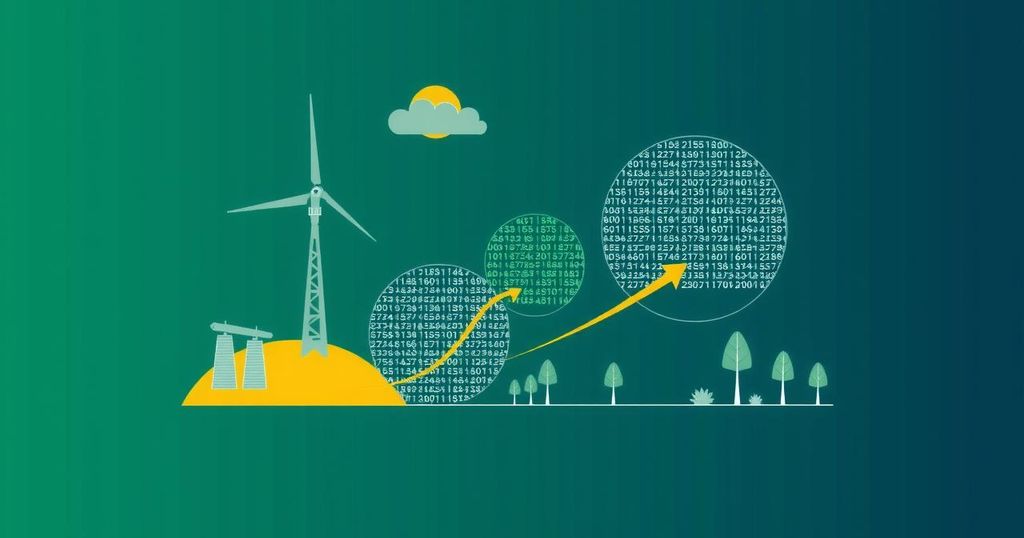Christine Lagarde, President of the European Central Bank, warned of a widening gap in climate financing during the COP29 climate conference, indicating that investment needs are significantly higher than current commitments. She emphasized the critical requirement for a substantial increase in clean energy investments by 2030 and highlighted the dire economic implications of climate inaction. UN Secretary-General Antonio Guterres urged for a funding agreement to support developing nations.
On Tuesday, European Central Bank President Christine Lagarde expressed concern regarding the expanding gap between the financial resources required to address the climate emergency and the commitments made thus far. Speaking at the COP29 climate conference in Baku, she indicated that the financial necessities are 50 percent greater than previously estimated and could be as much as 18 times more than current pledges. Lagarde emphasized that to facilitate the energy transition, investments in clean energy must increase threefold by 2030. In her commentary published in the Financial Times and on the ECB’s website, Lagarde referenced the United Nations Environment Programme’s assertion that approximately $11.7 trillion needs to be invested annually in climate change mitigation by 2035 to adhere to the Paris Agreement’s goal of limiting global warming to well below two degrees Celsius compared to pre-industrial levels. This figure constitutes nearly ten percent of the world’s economic output. Lagarde, who prioritizes climate protection during her tenure at the European Central Bank, cited recent severe weather events, such as the devastating floods in Spain and storms across North America, as evidence of the escalating consequences of climate inaction. She remarked that these incidents are undermining the foundations of global economies, which poses a grave threat to long-term economic stability. Furthermore, United Nations Secretary-General Antonio Guterres also addressed the ongoing discussions at COP29, urging nearly 200 participating countries to finalize a funding agreement from wealthier nations to assist developing economies in their adaptation efforts to climate change. He insisted that developing nations should not depart Baku without securing adequate financial support, stating that, “A deal is a must.”
The dialogue surrounding climate change financing has intensified, particularly in light of increasing global temperatures and extreme weather events. Financial requirements for combating climate change and facilitating energy transitions have become alarming, necessitating urgent global action. The United Nations Framework Convention on Climate Change (UNFCCC) and subsequent agreements, such as the Paris Agreement, establish targets for countries to limit global warming. In recent years, financing for climate actions, particularly in developing countries, has been critical to support initiatives that mitigate adverse environmental impacts and bolster economic resilience.
In summary, the widening climate financing gap poses significant challenges to global efforts in addressing climate change. President Christine Lagarde’s statements at COP29 underscore the urgent need for increased investment in clean energy and climate mitigation efforts, while UN Secretary-General Guterres emphasizes the necessity for developed nations to provide financial assistance to their developing counterparts. The outcomes of COP29 will be pivotal in shaping future climate action and investment strategies.
Original Source: www.barrons.com






